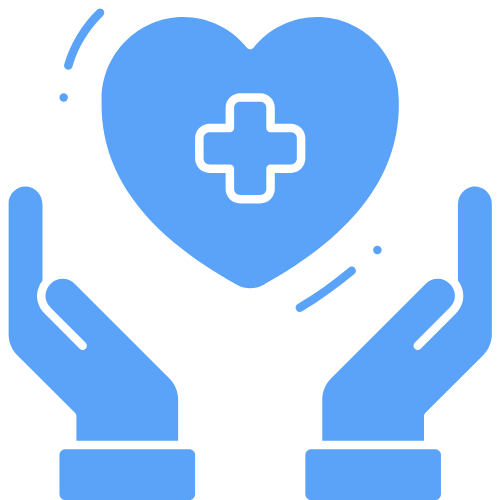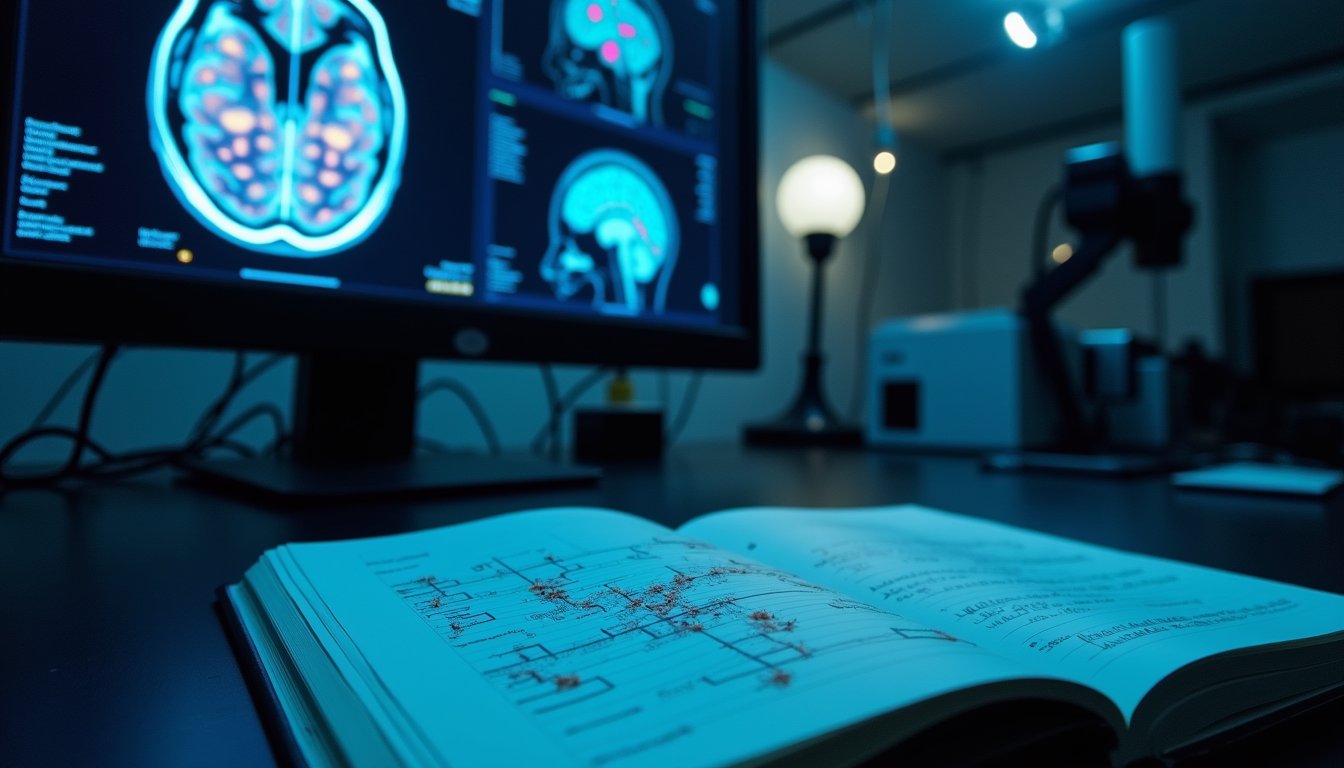Recent scientific breakthroughs in mental health reveal dramatic advances you’ll want to understand. Research shows molecular mechanisms of memory formation, with fatty compounds making up 60% of brain weight and pivotal lipid pathways essential for cognitive function. You’ll find AI-powered predictions achieving 84% accuracy in forecasting mental health risks, while digital therapeutics transform care delivery with 4x increased adoption rates. These developments mark the beginning of a revolutionary shift in mental health treatment approaches.
Breakthroughs in Memory Formation Research

Recent breakthroughs in memory formation research have revealed vital molecular mechanisms that support how our brains encode and store information. Scientists have identified a crucial lipid-based pathway involving myristic acid and the DDHD2 enzyme that’s essential for memory formation. This discovery shows how molecular signaling pathways regulate synaptic strengthening through protein modifications. Research demonstrates that fatty compounds make up about 60% of the brain’s total weight, highlighting their critical role in cognitive function. The groundbreaking technique developed by Harvard research team has revolutionized how scientists observe synaptic interactions. A new study has shown that neurons form multi-synaptic boutons when creating memory traces in the brain.
You’ll find that structural memory changes occur at the nanoscale level, as demonstrated by high-resolution imaging of hippocampal engrams. Using advanced techniques like EPSILON and 3D electron microscopy, researchers can now track how AMPAR proteins influence synaptic plasticity. These findings have presented specific cellular reorganization patterns during learning and memory consolidation. The research offers promising therapeutic applications for PTSD and memory-related disorders by potentially modulating these newly understood pathways.
Digital Tools Revolutionizing Mental Health Care
Modern digital mental health tools now enable you to access therapeutic support through smartphones and wearables, with research showing a 40% adoption rate among adults experiencing psychological distress. You’ll find these technologies are transforming treatment delivery through AI-powered chatbots and remote monitoring systems that predict declining mental health before crisis points. Clinical evidence demonstrates that combining human support with digital interventions improves treatment adherence and outcomes, particularly when tools provide real-time feedback and personalized behavioral insights. Research indicates that web-based screening helps reduce stigma and enables early identification of mental health concerns. The rapidly evolving landscape of mental healthcare presents both opportunities and challenges as organizations work to implement digital mental health solutions in response to growing youth mental health needs. The integration of these innovative tools has become increasingly vital, as 970 million individuals worldwide were affected by mental disorders in 2019.
Tech-Driven Treatment Access
Digital innovations have fundamentally transformed how mental health care reaches patients, addressing critical workforce shortages of over 126,000 providers in the U.S. healthcare system. The integration of personalized care interventions through digital wellbeing tools has led to a remarkable 4x increase in adoption rates, from 10% in 2013 to 40% in 2024. Leading mental health apps like Headspace and Calm have achieved remarkable success, with 2 million subscribers and widespread adoption among users seeking digital support. Apps provide valuable 24/7 support services for users seeking immediate assistance with mental health concerns.
Today’s mental health professionals increasingly welcome technology solutions, with 85% utilizing teletherapy services. The global mental health apps market reflects this shift, projected to grow from $5.2B to $23.8B by 2032. These digital platforms enable early intervention and expand access to underserved populations through AI-assisted screening and CBT apps. Current estimates value the Digital Mental Health Technology market at $9 to $20 billion, with expectations to more than double within the next decade. While implementation challenges persist around privacy and regulations, the effectiveness data shows promising results, with 91% of clients reporting satisfaction with digital mental health services.
Remote Monitoring Improves Outcomes
Numerous advances in remote monitoring technologies have transformed mental health diagnostics and intervention strategies, enabling clinicians to track physiological and behavioral markers with unprecedented precision. You’ll find these systems now integrate multiple data streams from glucose levels to heart rate variability providing early warning signs of potential mental health deterioration. Natural language processing analyzes patient communications to detect subtle changes in emotional states. Mental health professionals recognize that early relapse detection is a key benefit of digital remote monitoring systems. Smart pillboxes enable precise tracking of medication compliance for patients with severe mental illness.
Clinical workflow redesign has made it possible to combine remote patient monitoring with therapeutic interventions, allowing for timely responses to concerning changes in patient status. Through data integration across platforms, you’re able to identify patterns linking physical and mental health markers. While privacy concerns and resource constraints present ongoing challenges, standardized protocols and training programs help maintain therapeutic relationships while maximizing the benefits of remote monitoring. This technology-enhanced approach substantially improves treatment outcomes through early detection and intervention.
AI Predicts Mental Health
Building on remote monitoring capabilities, artificial intelligence has emerged as a powerful predictive tool in mental health care. Through human AI collaboration, researchers at Emory have developed models that can forecast youth mental health risks up to a year in advance, with sleep disturbances emerging as the strongest predictor. A Duke Health study achieved 84% accuracy rate in identifying patients whose mental illness would escalate within a year. Platforms like Clare&me and Limbic offer AI-powered therapy companions that provide 24/7 support. The groundbreaking research analyzed over 11,000 children aged 9 to 10 as part of the ABCD Study.
Cross validation methods using the ABCD study’s extensive dataset of 11,000+ children have demonstrated AI’s ability to identify risk factors more effectively than traditional approaches. You’ll find that neural networks now enable low-cost behavioral screenings without requiring expensive neuroimaging. While AI shows promise in personalizing treatment plans and improving accessibility, it is crucial to acknowledge its limitations. The technology can’t replicate the emotional depth of human care, and ethical concerns about data privacy and algorithmic bias require ongoing professional oversight.
Genetic Studies Unlock Bipolar Disorder Insights
Groundbreaking genetic research involving 2.9 million participants has revolutionized our understanding of bipolar disorder’s biological foundations. Scientists identified 298 genomic risk regions and 36 key genes, establishing population-specific profiles that vary across ancestry groups. This extensive analysis enables precise drug target identification for future therapeutic interventions.
| Research Aspect | Key Finding |
|---|---|
| Risk Regions | 298 genomic locations identified |
| Core Genes | 36 strong disease associations |
| Population Data | European, Asian, African, Latino |
| Clinical Impact | Drug development targets revealed |
| Future Focus | Personalized treatment pathways |
The findings demonstrate significant genetic overlap with other psychiatric conditions, particularly schizophrenia and depression. You’ll see these discoveries reshape treatment approaches as researchers develop targeted therapies based on individual genetic profiles, moving psychiatry in the direction of precision medicine.
Sleep Patterns and Cognitive Function Discoveries

Your brain processes memories during rest periods through distinct neural stages that optimize cognitive function. When you maintain consistent sleep patterns of 7-9 hours nightly, you support critical memory consolidation and bolster cognitive preservation. Research demonstrates that your memory performance correlates directly with sleep quality metrics, as neural processing during rest facilitates both short-term recall and long-term retention.
Memory During Rest
Recent advances in sleep research consistently demonstrate that rest periods serve a dual function in memory processing. During slow-wave sleep, your brain doesn’t just strengthen existing memories it actively prepares neural pathways for future learning. This critical process involves hippocampal replay, where your brain rehearses daily experiences to augment long term memory formation.
Your breathing patterns markedly influence these memory processes through brain-rhythm synchronization. Sleep quality assessment reveals that nasal respiration coordinates hippocampal waves and spindles, while disruptions like sleep apnea can impair memory consolidation. Research shows higher spindle frequencies correlate with better memory performance, particularly in children. Deep brain stimulation techniques have now confirmed that synchronized slow-wave activity between the hippocampus and cortex directly boosts memory storage, offering promising therapeutic applications for cognitive disorders.
Neural Stage Processing
While scientists have long studied sleep’s role in memory, breakthrough findings about neural stage processing reveal intricate mechanisms of cognitive preparation during rest. You’ll find that during NREM sleep, your brain orchestrates complex synaptic plasticity mechanisms that prime neural networks for future learning. These processes involve newly discovered engram-to-be cells that synchronize with existing memory patterns.
Through targeted brain stimulation, researchers have replicated these benefits, demonstrating how sleep-dependent synaptic depression and scaling optimize your neural circuitry. This fine-tuning prevents memory network saturation while improving signal clarity. The interaction between past memory engrams and future learning potential creates bridging neural hubs, enabling rapid integration of new information. These findings suggest potential therapeutic applications for memory disorders and learning augmentation through sleep stage modulation.
Maternal Mental Health Impact on Child Development
Maternal mental health conditions during pregnancy and postpartum periods substantially influence child development across multiple domains. Research demonstrates that untreated maternal mental health challenges can lead to vital developmental delays in children, affecting their cognitive, emotional, and social growth.
Key findings reveal:
- Language delays and impaired emotional regulation emerge in infants of affected mothers
- Early parenting intervention strategies markedly reduce developmental risks
- Maternal mental health screenings during prenatal visits prove essential for prevention
- Children show improved outcomes when mothers receive prompt treatment
You’ll find that early detection and intervention are indispensable, as developmental challenges become more pronounced without proper support. Healthcare providers now emphasize integrating mental health services into standard prenatal and postnatal care, recognizing that addressing maternal mental health early proves more cost-effective than managing long-term developmental complications.
PTSD Treatment Advances and Relationship Dynamics

Groundbreaking advances in PTSD treatment have revolutionized therapeutic approaches, with emerging evidence supporting personalized interventions and novel technologies. You’ll find increased PTSD treatment access through customized protocols that match your specific symptom profile and trauma history. Clinical trials, supported by a $3 million DoD grant, demonstrate remarkable success rates with combined therapies.
| Treatment Type | Innovation | Clinical Impact |
|---|---|---|
| VNS Therapy | Implant + Exposure | 100% Diagnosis Loss |
| Virtual Reality | Controlled Exposure | Reduced Distress |
| Targeted Medications | Memory Reconsolidation | Fewer Side Effects |
| STAIR/CPT | Personalized Protocols | Improved Outcomes |
These personalized intervention approaches include virtual reality exposure therapy, vagus nerve stimulation, and targeted medications focusing on stress hormone regulation. You’re now experiencing a paradigm shift from standardized treatment to precision-based care, offering more effective and sustainable recovery options.
Telehealth Solutions and Risk Management
Recent advances in telehealth solutions have transformed mental health service delivery, with nearly 80% of providers now offering virtual care options. Provider education has become crucial in steering hybrid care models while addressing equity considerations across diverse populations.
Key developments in telehealth implementation include:
- Integration of precision psychiatry tools with digital platforms to enhance treatment personalization
- Risk assessment frameworks that monitor socioeconomic disparities in virtual care access
- Implementation of cultural competency training for providers delivering remote services
- Adoption of standardized quality metrics for evaluating telehealth effectiveness
You’ll find that successful telehealth programs now emphasize both technological infrastructure and access equity. The focus has shifted to combining virtual and in-person care modalities while ensuring compliance with upcoming 2025 regulations. This approach optimizes treatment outcomes while addressing healthcare disparities through targeted interventions.
Integrated Care Models Show Promise Globally
While global healthcare systems face mounting mental health challenges, integrated care models demonstrate remarkable success in both clinical outcomes and cost efficiency. You’ll find these models reduce healthcare costs by up to 24% while improving patient outcomes through coordinated physical and mental health services.
| Impact Area | Key Benefits |
|---|---|
| Cost Savings | 9-17% reduction in claims costs |
| Clinical Outcomes | Amplified depression treatment across demographics |
| Access | Improved reach to underserved populations |
| Coordination | Seamless primary care integration |
The evidence shows financial incentive alignment through value-based reimbursement drives sustainable implementation. Studies confirm underserved populations integration benefits from collaborative care partnerships, particularly in Medicare Advantage plans. You’ll see standardized protocols ensuring consistent delivery across urban and rural settings, while interdisciplinary teams address both medical and social determinants of health through measurement-informed approaches.
Preventive Strategies for Rising Mental Health Needs
Effective preventive strategies have emerged as critical interventions for addressing escalating mental health needs across populations. Through community-based initiatives and public-private partnerships, you’ll find expansive approaches targeting both individual and systemic factors.
Key preventive advances include:
- AI-powered predictive models that identify suicide risk through electronic health records, enabling early intervention
- Integrated primary care solutions showing 25% reduction in suicide attempts through routine screening
- Technology-enhanced outreach programs expanding access to mental health resources in underserved communities
- Evidence-based frameworks addressing social determinants of health through coordinated national strategies
These developments reflect a shift in the direction of proactive mental health management, emphasizing early detection and intervention while leveraging both technological innovations and traditional healthcare infrastructure to improve outcomes across diverse populations.
Frequently Asked Questions
How Long Does It Typically Take for New Mental Health Treatments to Become Widely Available?
You’ll find that new mental health treatments face extensive delays before reaching patients. Clinical trial timelines typically span 5-10 years, followed by a rigorous regulatory approval process. Even after approval, you’re looking at additional wait times of 18+ months for patient access that’s 8 times longer than physical health treatments. The entire progression from development to widespread availability often takes 10-15 years, with systemic barriers further slowing treatment adoption.
What Role Does Nutrition Play in Maintaining Mental Health and Preventing Disorders?
Your mental health is greatly influenced by what you eat, as nutritional deficiencies can directly impact brain function and mood regulation. The gut-brain connection plays a vital role, with your microbiome producing neurotransmitters that affect emotional well-being. You’ll benefit most from a Mediterranean-style diet rich in omega-3s, while avoiding ultra-processed foods. Clinical evidence shows that proper nutrition can help prevent depression, anxiety, and other mental health disorders.
Can Environmental Factors Override Genetic Predisposition to Mental Health Conditions?
Yes, environmental factors can markedly override your genetic predisposition to mental health conditions through epigenetic modifications. Your lifestyle choices and experiences can either activate or suppress genetic vulnerabilities. While you may carry certain genetic risks, factors like socioeconomic status, early life experiences, and stress resilience training can considerably alter your mental health trajectory. Research shows that environmental influences account for 17% of outcome variation, compared to less than 2% for genetic factors alone.
How Do Cultural Differences Affect the Effectiveness of Mental Health Interventions?
Your cultural background markedly influences how you respond to mental health treatments. Cultural stigma reduction is vital, as beliefs about mental illness can delay or prevent you from seeking help. Your socioeconomic status impacts access to culturally appropriate care, while traditional healing preferences may conflict with Western approaches. Research shows you’ll respond better to culturally adapted interventions, which are four times more effective than standard treatments. You’ll benefit most from therapies that respect your cultural values and experiences.
What Percentage of Mental Health Conditions Remain Undiagnosed in the General Population?
While exact undiagnosed prevalence is challenging to measure, research suggests a substantial portion of mental health conditions remain undetected. You’ll find that approximately 57% of adults with mental illness don’t receive treatment, which often indicates lack of diagnosis. Major barriers to diagnosis include stigma, limited healthcare access, and cost concerns. The evidence is particularly striking in suicide data, where 54% of individuals who died by suicide had no previously diagnosed mental health condition.
















